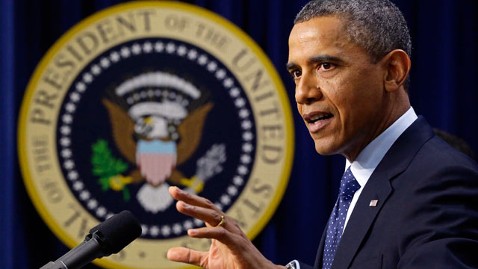The fiscal pact Congress reached hours into the new year will delay $109 billion in automatic across-the-board spending cuts for two months. But it will make a down payment on those reductions that will affect federal operations this year and next.
The eleventh-hour agreement to avoid a “fiscal cliff” of higher taxes put off the major cuts known as a sequester until March 1, when another showdown is expected over the federal debt limit and how much to reduce the size of government.
Congress and the White House agreed to find $24 billion to pay for the delay, divided between spending cuts and a tax change that allows Americans holding traditional retirement plans to convert more of them to Roth IRAs, a process that requires tax payments up front.
The remaining $12 billion in cuts to domestic and defense agencies will not take effect until at least March 27, when the stopgap budget funding the government expires. The first $4 billion in cuts must come by Sept. 30, the end of the fiscal year, and the remaining $8 billion in fiscal 2014, which will start Oct. 1.
The cuts will be rolled into budget deliberations on Capitol Hill, and no one knows what agencies and programs they will affect. Out of a discretionary spending budget of $1.04 trillion, $12 billion is relatively small. But it’s not a rounding error.
“There will be a few select cuts that will be painful,” said Patrick Lester, fiscal policy director at the Center for Effective Philanthropy (formerly OMB Watch). “We won’t know for months what those cuts are, which makes them easy to do.”
William R. Dougan, president of the National Federation of Federal Employees, said $12 billion “spread across the government doesn’t sound like a lot of money, but it depends on how it’s spread out.”
Even if each agency took a hit, some “will still be looking at furloughs and even [reductions in force] as a possible solution,” he said. Those are some of the near-certain actions many agencies have said they would take if they had to make the across-the-board cuts Congress imposed in 2011 to force itself to reckon with the federal deficit.
On Wednesday, government and union leaders said that threat, just two months away, is making them nervous.
Defense Secretary Leon E. Panetta said Congress has “prevented the worst possible outcome by delaying sequestration for two months.”
But he warned that the “the specter of sequestration” threatens national security.
“We need to have stability in our future budgets,” Panetta said in a statement. “We need to have the resources to effectively execute our strategy, defend the nation, and meet our commitments to troops and their families after more than a decade of war.”
Several officials said they are still sorting out what the two-month delay means.
“We are working hard with [the Office of Management and Budget] to understand the impact, but we’re just not there yet,” said Army Lt. Col. Elizabeth Robbins, a Defense Department spokeswoman.
Defense consultant Jim McAleese said the deal to raise taxes on families with income above $450,000 and individuals earning more than $400,000 will bring in so much less revenue than the $250,000 threshold President Obama proposed that steep defense cuts are inevitable.
Instead of the $10 billion in cuts a year over 10 years that the Defense Department could have expected to see under Obama’s most recent deficit reduction plan, McAleese said the reductions could be more in the range of $15 billion to $20 billion a year over 10 years.
“People were talking before about defense cuts of $10 billion per year, but the sheer size of the disagreement is going to bring about an immediate, aggressive reaction that will impact the final outcome of the spending cuts,” he said.
Colleen M. Kelley, president of the National Treasury Employees Union, said of the $12 billion in cuts, “I would hope agencies could find these savings without impacts on front-line employees and without impacts on services to the public. We have more questions than answers right now.”
Steve Vogel contributed to this report.

















